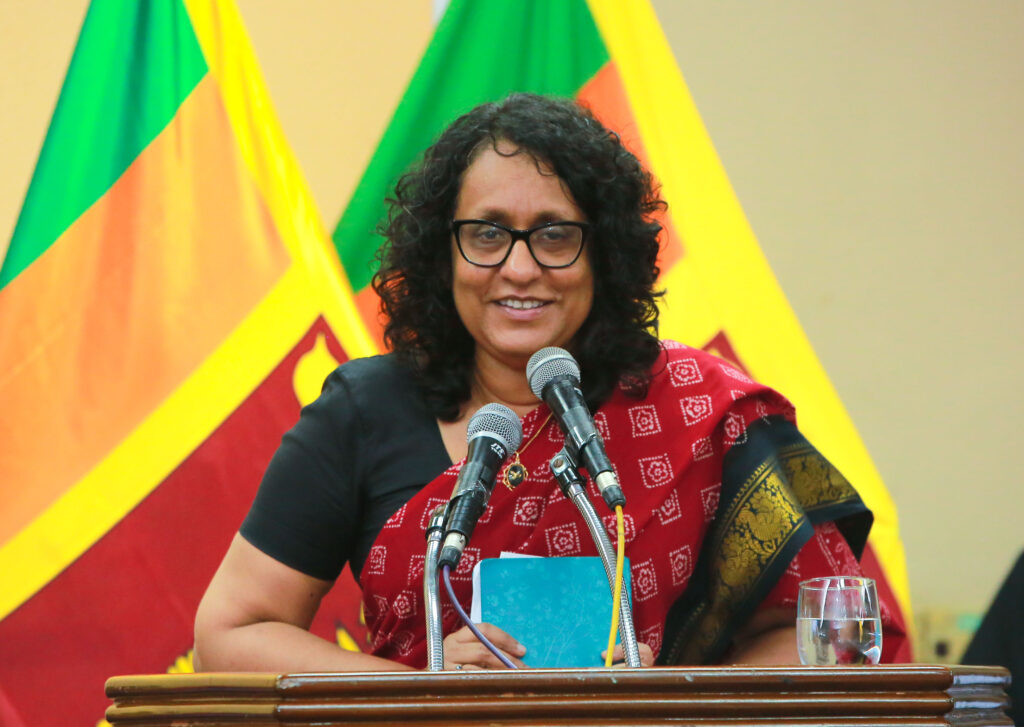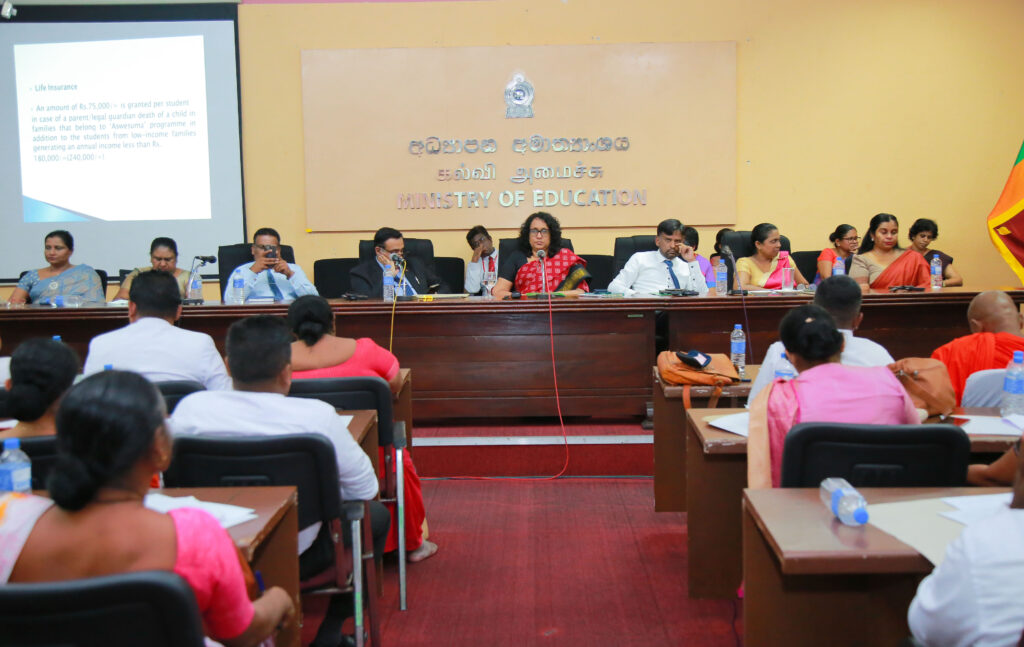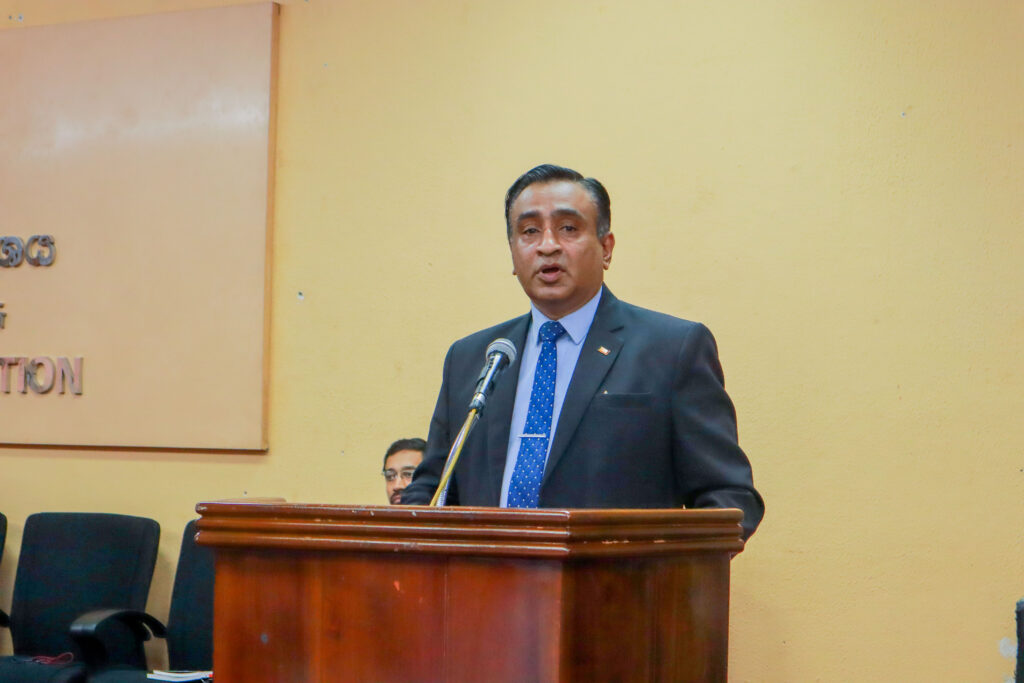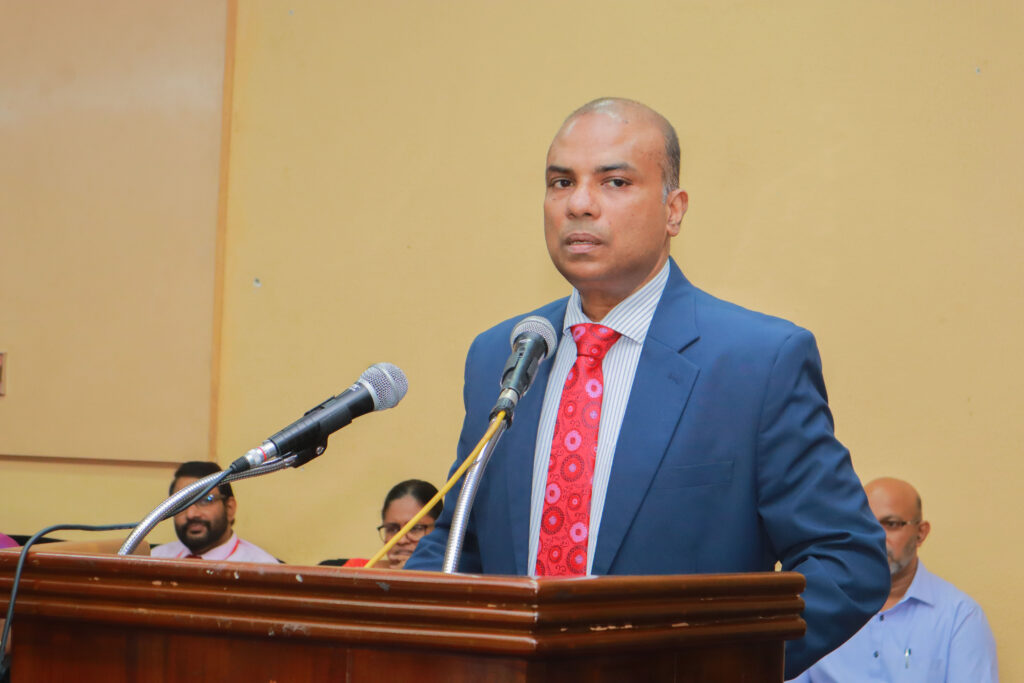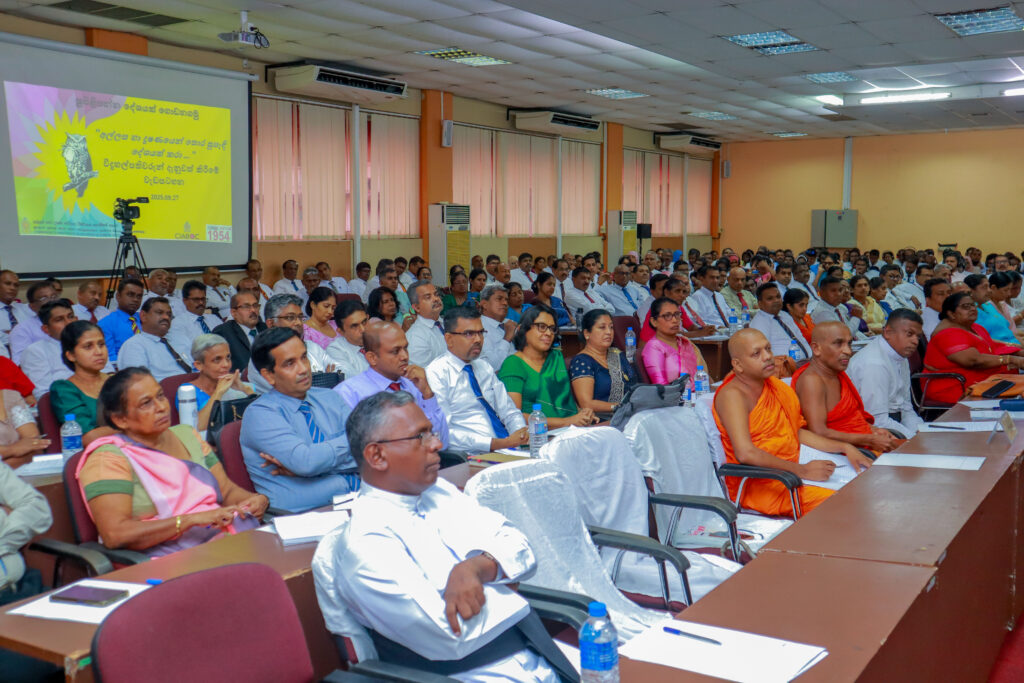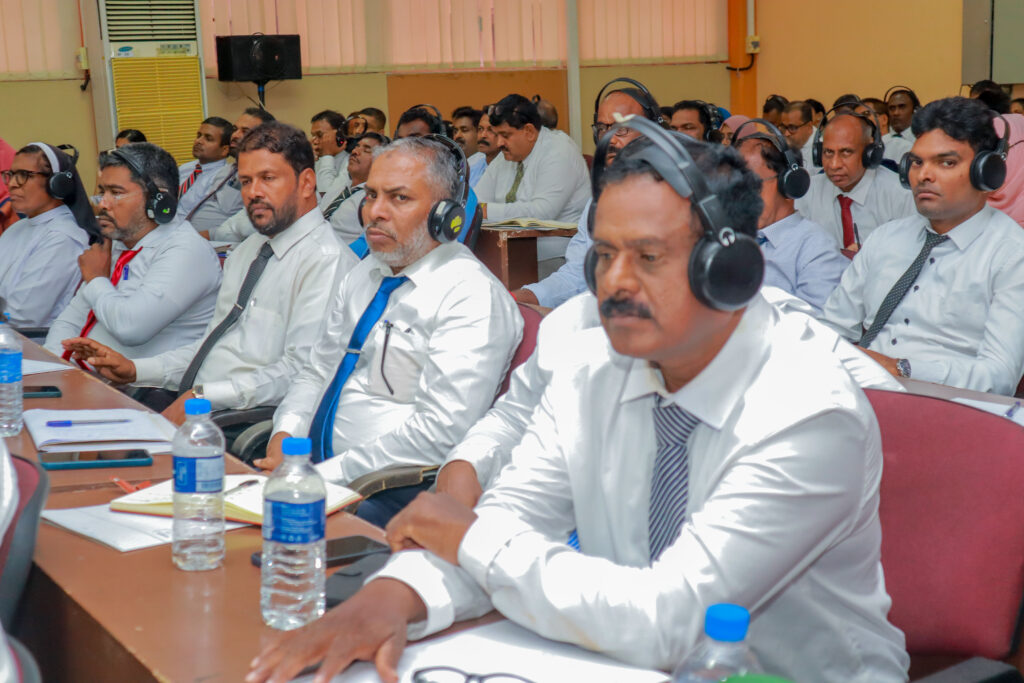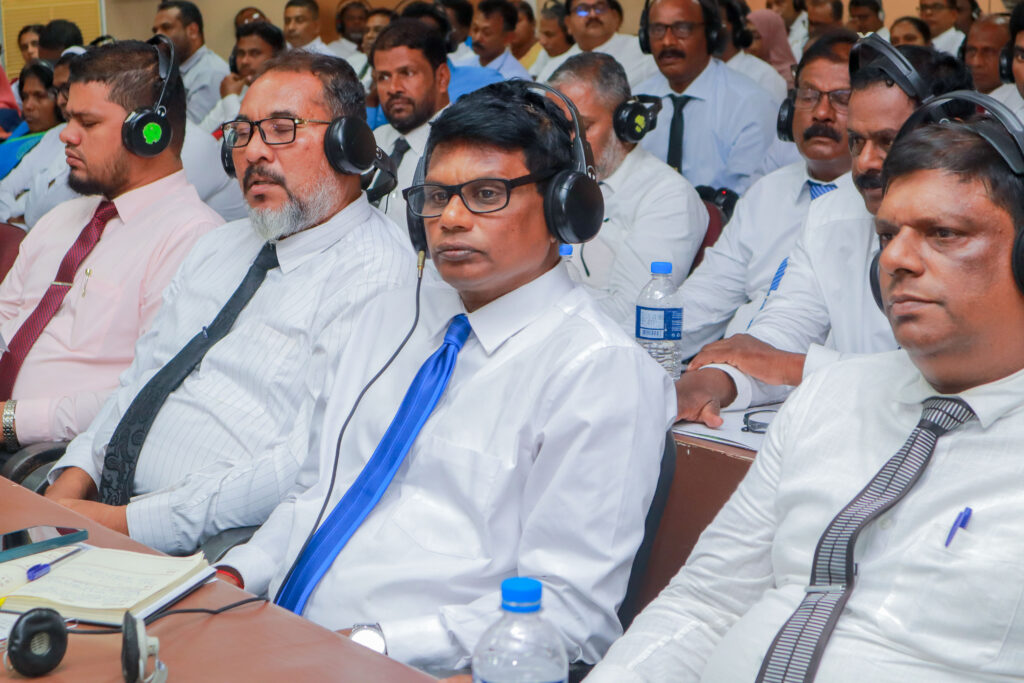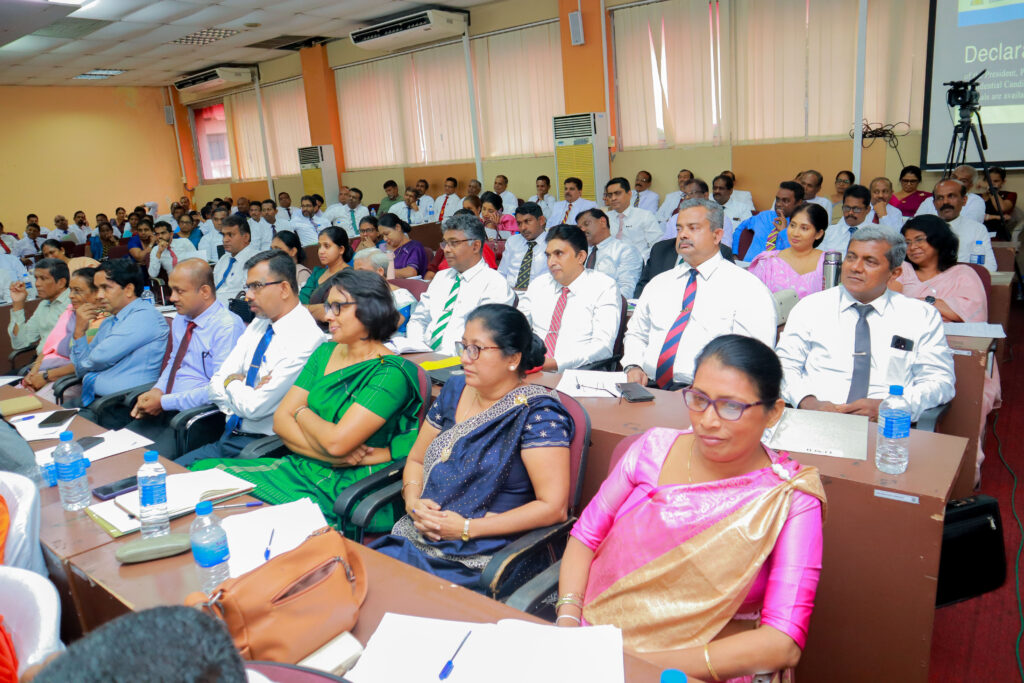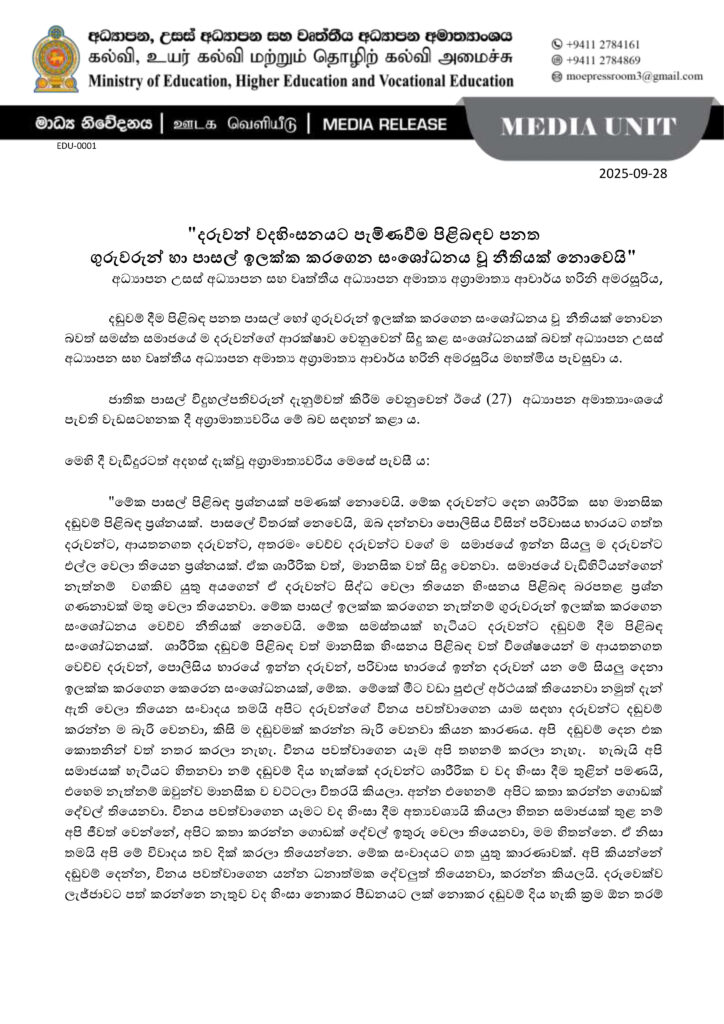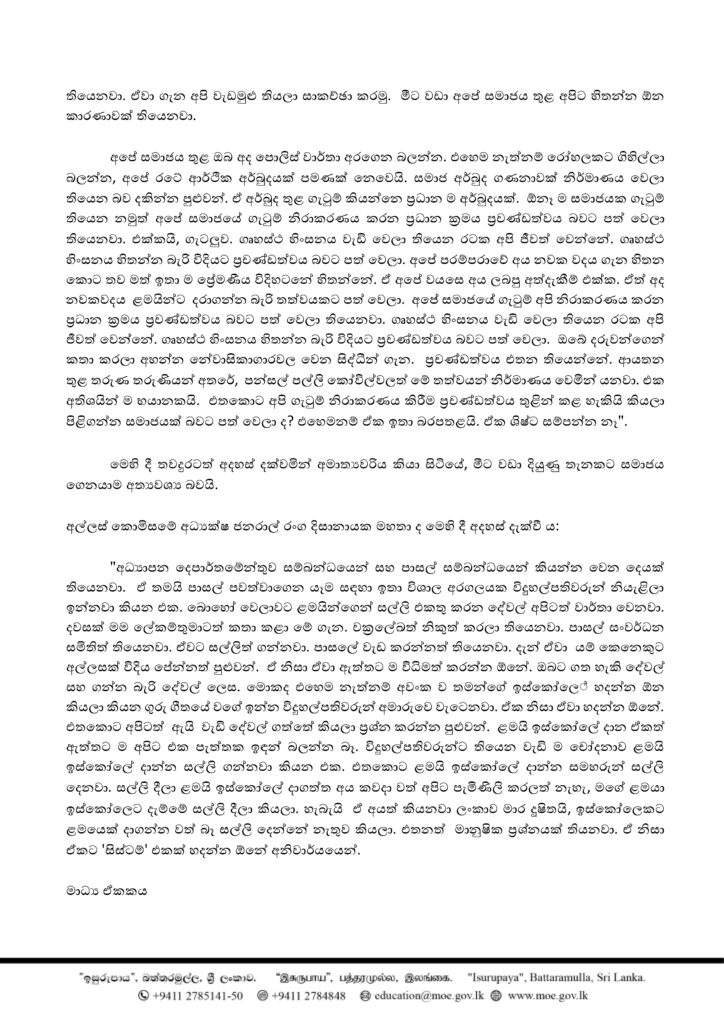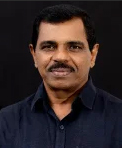The Prime Minister and the Minister of Education, Higher Education and Vocational Education, Dr. Harini Amarasuriya, stated that the law on punishment is not an amendment made targeting schools or teachers, but a reform carried out for the protection of all children in the entire society.
The Minister made this remark yesterday (27), during a program held at the Ministry of Education to raise awareness among principals of national schools.
Further expressing her views, the Prime Minister said:
“This is not merely an issue concerning schools. This is a matter regarding physical and psychological punishments imposed on children. It is not only within schools — you know, children taken into custody by the police, institutionalized children, children who are abandoned, as well as all children in society, are affected by this issue. It occurs both physically and psychologically. Serious problems have arisen concerning violence inflicted on children by adults or responsible persons in society. This is not a law amended targeting schools or teachers. This is a reform concerning the punishment of children as a whole. It is a reform targeting especially institutionalized children, children under police custody, children under probation, as well as all these groups, regarding physical punishments and psychological abuse. This has a broader meaning. But the discussion that has now emerged is that we cannot punish children in order to maintain discipline, that no form of punishment is allowed. We have not stopped punishment altogether. We have not banned maintaining discipline. But if, as a society, we think that discipline can be maintained only by inflicting physical harm or only by subjecting them to psychological oppression, then we have many things to discuss. If we live in a society that believes punishment through violence is essential to maintaining discipline, then we still have many issues left to address, I believe. That is why we have extended this debate. This is a matter that needs discussion. What we are saying is that there are positive ways to punish and to maintain discipline. There are many methods to discipline a child without humiliating, abusing, or subjecting them to pressure. We will hold workshops and discussions about those methods. More than this, there is something else our society should reflect on.
Look at police reports today, or visit a hospital — you will see that our country is not only facing an economic crisis but also a multitude of social crises. Among those, conflict is a major one. Conflicts exist in any society, but in our society the primary method of resolving conflicts has become violence. We live in a country where domestic violence has escalated. Domestic violence has reached a level that cannot even be imagined. In our generation, when thinking about initiation ragging practices, we thought of them in a somewhat affectionate way, based on our own experiences. But today initiation ragging practices have become unbearable for children. Conflict resolution in our society has become centered on violence. We live in a country where domestic violence has increased to unimaginable proportions. Ask your children about the incidents happening in hostels — violence exists there. In institutions, among young men and women, and even in temples, churches, and kovils, these situations are emerging. That is extremely dangerous. Then, have we become a society that accepts resolving conflicts through violence? If so, that is very serious. That is not civilized.”
Further expressing her views, the Minister stated that it is essential to lead society to a more advanced level.
Director General of the Bribery Commission, Mr. Ranga Dissanayake, also expressed his views at the event:
“Regarding the Department of Education and schools, there is something to be said. That is, principals are engaged in a tremendous struggle to maintain schools. Very often we also receive reports about collecting money from children. One day I even spoke to the Secretary about this. Circulars have been issued. There are also School Development Societies. They collect money. There are also needs to carry out work in schools. Now, to some, this may appear like a form of bribery. Therefore, those matters need to be regularized — what can be obtained and what cannot. Otherwise, principals, who sincerely want to develop their schools, as said in the “Guru Geethaya”, face difficulties. Therefore, these matters need to be structured. Then we will also be able to question why excessive money was taken. Even regarding contributions made by children to schools, we cannot simply dismiss it from one side. The main accusation against principals is that they take money to admit children to schools. But when some parents pay money to admit their children to schools, none of them has ever come to complain that their child was admitted by paying money. However, those same people also say that Sri Lanka is extremely corrupt, and that one cannot even admit a child to school without paying money. There too lies a human problem. Therefore, a proper system must definitely be created for that.”
Media Unit
